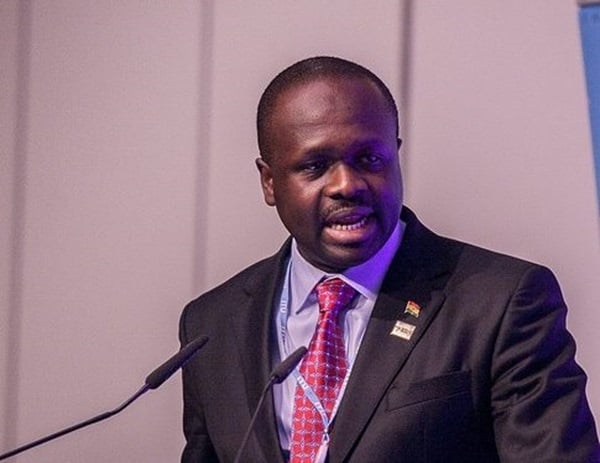Dr. Edward Omane Boamah, Ghana’s Minister for Defence, has launched a scathing critique of the opposition New Patriotic Party (NPP), accusing them of rehashing the same strategic blunders that culminated in their defeat in the 2024 general elections. In a strongly worded statement posted on his Facebook page, he characterized the NPP’s current parliamentary presence as a “micro-minority,” suggesting that the party is trapped in a cycle of self-destructive behavior, mirroring the very missteps that led to what he termed their “most humiliating defeat in recent memory.” This public rebuke underscores the ongoing political tensions in Ghana and reflects the deep divisions between the ruling National Democratic Congress (NDC) and the opposition NPP.
Central to Dr. Boamah’s criticism is the assertion that the NPP has failed to learn from its past mistakes, seemingly oblivious to the factors that contributed to their electoral setback. He implies a lack of introspection and a refusal to adapt to the changing political landscape, suggesting that the party is destined to repeat its past failures if it continues on its current trajectory. This stagnation, according to Dr. Boamah, is evident in the NPP’s parliamentary performance, where their reduced numbers have diminished their influence and effectiveness in holding the government accountable. The “micro-minority” label serves to further emphasize their weakened position and their perceived inability to mount a credible challenge to the ruling NDC.
In contrast to the NPP’s perceived failings, Dr. Boamah highlighted the perceived successes of the Mahama administration, emphasizing the government’s focus on economic recovery and its commitment to delivering tangible benefits to the Ghanaian people. He pointed to improving economic indicators as evidence of the government’s effectiveness, suggesting that the post-pandemic recovery is gaining momentum and translating into real improvements in the lives of ordinary citizens. This positive portrayal of the government’s economic performance serves as a counterpoint to the NPP’s criticisms and aims to bolster public confidence in the Mahama administration.
Furthermore, Dr. Boamah commended the vigilance of Ghanaian citizens and civil society organizations in safeguarding the integrity of the 2024 elections. He attributed the prevention of alleged electoral manipulation attempts by the NPP to the collective alertness of the populace, portraying these groups as crucial defenders of democracy. This acknowledgement of citizen engagement reinforces the narrative that the government is committed to transparency and accountability, while simultaneously casting the NPP as a threat to the democratic process. The assertion that the NPP attempted to “rig” the elections, even if unsubstantiated, serves to further discredit the opposition and strengthen the NDC’s position.
Dr. Boamah’s remarks come against a backdrop of heightened political polarization and increased scrutiny of the Mahama administration’s performance. While the government touts its economic progress, it continues to face challenges related to unemployment and other socio-economic issues. The NPP, on the other hand, is grappling with internal divisions and struggling to regain its footing after the 2024 electoral defeat. This ongoing political tug-of-war plays out in Parliament, where the two parties engage in heated debates and accusations, reflecting the broader societal divisions within Ghana.
In essence, Dr. Boamah’s statement serves as a multi-pronged attack on the NPP, criticizing their strategic missteps, questioning their relevance, and accusing them of anti-democratic tendencies. Simultaneously, it serves as a platform to promote the perceived successes of the Mahama administration and to highlight the government’s commitment to economic recovery and democratic principles. This public exchange of accusations and counter-accusations underscores the ongoing political tensions within Ghana and sets the stage for further confrontations as the country navigates its post-election landscape. The competing narratives presented by the ruling party and the opposition reflect the deep divisions within Ghanaian society and highlight the challenges facing the nation as it strives for political stability and economic progress.














